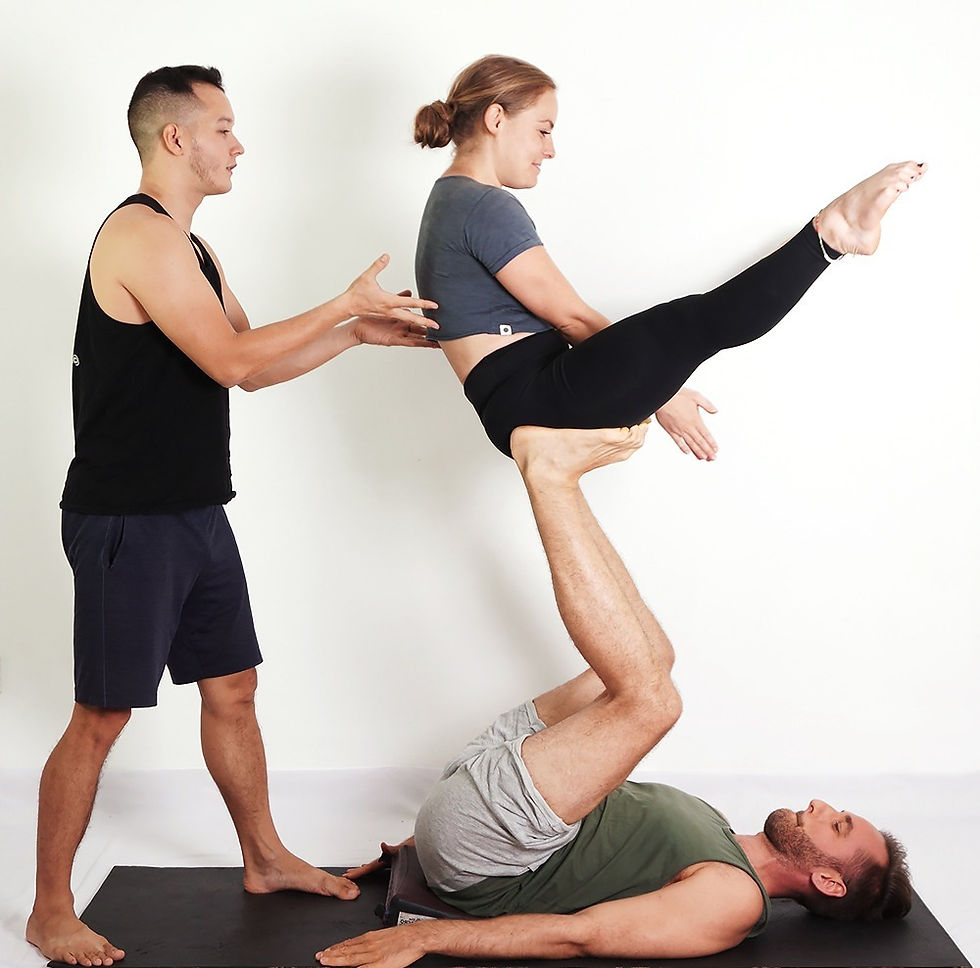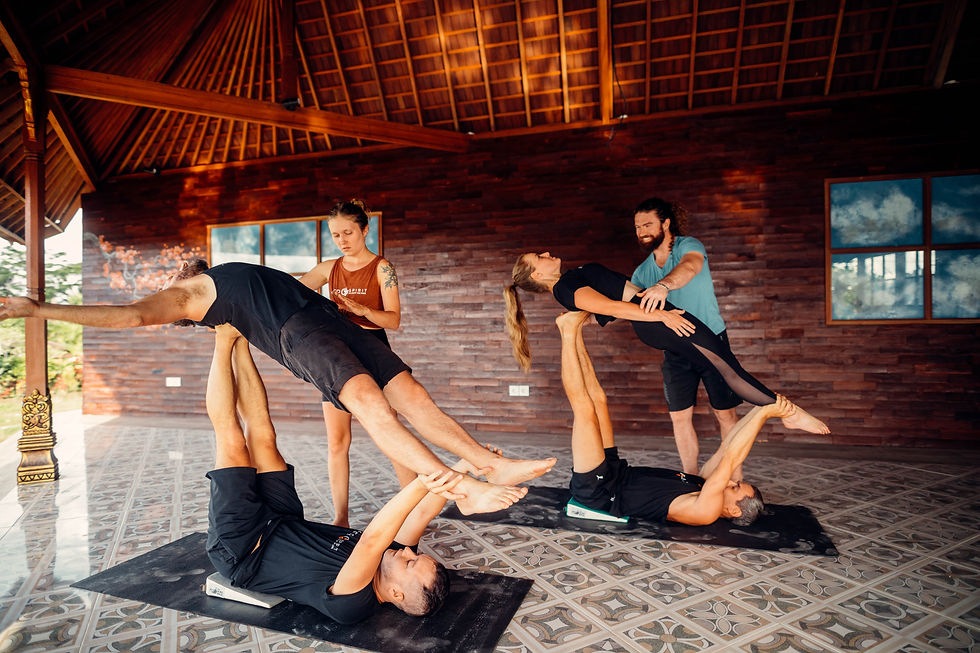Safety in Acroyoga is always Important!
I recently saw in another acro community that someone at a jam had to go to hospital to have their spine checked, and they had some nerve damage after an accident.
It just reminded me how important safety always is in our acro practices.

I don't know the specific details of the injury and how it happened, so I won't speak specifically about that incident.
However what I can speak about is that whilst serious injuries in acro aren't all that common, when they do happen the consequences can be massive!
I think one of the biggest reasons that accidents in acro do occur, is purely because many people aren't aware or anticipating that it is a possibility.
Especially beginners in acro, once you've gone past the basics and start to do more interesting moves.
If you haven't seen, experienced or been involved in a serious fall or accident, then the potential consequences of that don't really cross your mind.
I remember when I was starting out in acro, I would often think what's the worst that could really happen here, and think the risk in some things is very low.
Whilst that may be true, all it takes is one unexpected movement, or awkward fall and the consequences could be much more severe than anticipated.
That's why I think awareness is so important. It doesn't mean we need to be scared and constantly in fear of trying new moves.
But rather be more discerning of when the risks are greater, and how we can most of the time easily implement a safety measure to reduce the risk significantly.

This applies equally to more experienced practitioners too. The higher our skill level gets, the greater the risks because of the high or powerful dynamic skills we practice.
Then also in our experience we likely are safer and have less incidents/serious falls, but that can also lead us to feel overly confident in our safety.
Many of the serious injuries in acroyoga occur at the two ends of the spectrum in my experience.
Either in more beginners who are starting to advance, or the highly experienced people trying very advanced skills and it sometimes, very rarely going really wrong.

Even in the case of having a minor fall or injury, the impact goes beyond just the physical.
It often has an impact on trust, confidence, and fear.
It can cause shame, judgement, guilt and many other emotional responses too.
Having seen this and experienced some of this myself, I strongly commit to trying to always work in a safe way, and am always trying to raise my awareness around safety, trying not to feel over-confident.
The effort it takes to try to be more aware and safer in your practice is so worth it compared to the consequences or feelings that occur if something does happen.

The steps I recommend focusing on to make your practice safe is the following:
Accurate Self Assessment
Communication in advance
Falling and rolling drills
Blocking and catching drills
Knowing when to rest/stop
Spotting, when to use and how




Comentarios